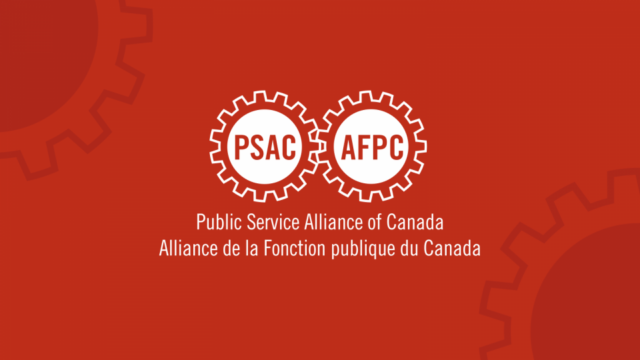Common Issues: PSAC and Treasury Board still far apart after insulting wage offer
PSAC is keeping all options on the table to put pressure on Treasury Board after they came to the Common Issues table with an unacceptable wage proposal during negotiations March 28–31. The employer’s offer of 1.5%, 2%, 1.75% and 1.5% over a four-year agreement — averaging 1.75% per year from 2021–2025 — is completely out of touch with soaring inflation across Canada.
“This offer is a slap in the face to our members who have been delivering frontline services to Canadians throughout the pandemic,” said Chris Aylward, PSAC national president. “If the government expects our members to pay for the costs of the pandemic, they have another thing coming.”
The government is asking our members to take a pay cut when they need a raise most. Last year’s inflation rate topped out at 3.4% and this year’s rate is expected to be well above 4%. Indicators reached 30-year highs in February 2022 and inflation is not expected to drop below 2% for 2023 and beyond. PSAC has proposed wage increases of 4.5% per year to protect workers from the rising cost of living and ensure PSAC members and their families don’t fall behind.
Other than a response on wages, the employer’s offer did not address any of the union’s proposals. They only restated their position on their concessionary proposals related to technological change, discipline, numerous leave provisions, and the Work Force Adjustment Appendix (WFA).
“We’re prepared to meet with the government again to try and find common ground, but right now we’re simply too far apart,” added Aylward. “If Treasury Board fails to come to the table with an offer that keeps up with the skyrocketing cost of living, we will be forced to escalate our actions across the country, up to and including taking strike votes.”
Ramping up actions across Canada
We need your help to fight for a fair deal by turning up pressure on the government.
Register now for our April 12 national panel on fair wages to learn more about why mobilization is more important than ever and take action to demand fair wages. Then, join us on April 14 for our virtual day of action where we will flood the lines of Members of Parliament calling for fair wages and better working conditions.
You can also learn more about how inflation impacts your job with our conversation starter, “What does rising inflation mean for Canadian workers?,” support your bargaining team by wearing buttons or pins and send a powerful message to the employer by using our virtual bargaining materials.
Please be sure to keep your contact information up to date to receive all the latest updates as we negotiate your next contract.
This article was first posted on the PSAC website.










